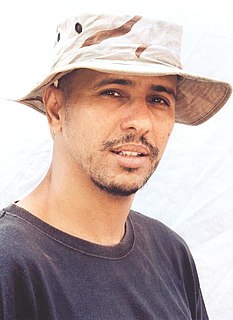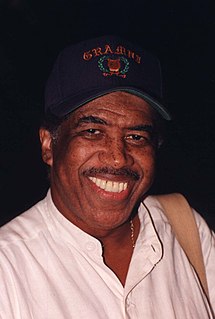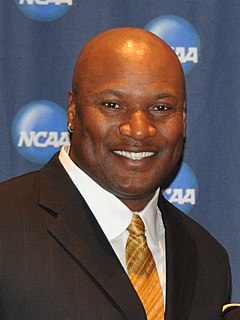A Quote by Kareem Abdul-Jabbar
I was latching on to something that was part of my heritage, because many of the slaves who were brought here were Moslems.
Related Quotes
The Fourteenth Amendment, after the civil war, in principle brought former slaves into the category of persons, theoretically. But if you actually look, almost all the cases brought up for personal rights under the Fourteenth Amendment were by corporations. Freed slaves couldn't do it. In fact they were pretty much driven back into something like slavery by a north - south compact, that allowed former slave states to criminalize black life, which made a criminal force that was basically used as a forced labor force, up until the 1930s.
It's always intrigued me that amidst the group called slaves there were individuals who were extremely able, who were extremely colorful, who were powerful personalities, who by no means fit the usual images of slaves. They were people who, through their personalities and abilities, were very respected in the community where they lived by both black and white.
Slavery wasn't something that grew up in the American South. and black people were not the first to be slaves in America. Before them there were 'indentured laborers,' taken out of jails in England and Scotland and so forth and brought to the colonies to work out their terms in the fields and then be set free.
It's not that humans and non-humans are identical... but the lack of understanding that led to the slave trade is the same lack of understanding many people have about animals today. When slaves were brought over from Africa, many people believed they were not humans, that they didn't have feelings. Many people believe that primates and other animals don't have feelings, too, but they do.
I knew I had that Cajun heritage, that Acadian heritage; I just feel it. And my gut says Irish on the other side. Irish and French, that's what I feel. When you're young, it doesn't matter so much, but as you get older, I would suspect part of the ageing process is to wonder about your ancestors - who were they? What were their lives like?
Many Southern Plantation owners were working towards the day when they could convert their investment to more profitable industrial production as had been done in the North, and others felt that freemen who were paid wages would be more efficient than slaves who had no incentive to work. For the present, however, they were stuck with the system they inherited. They felt that a complete and sudden abolition of slavery with no transition period would destroy their economy and leave many of the former slaves to starve - all of which actually happened in due course.




































